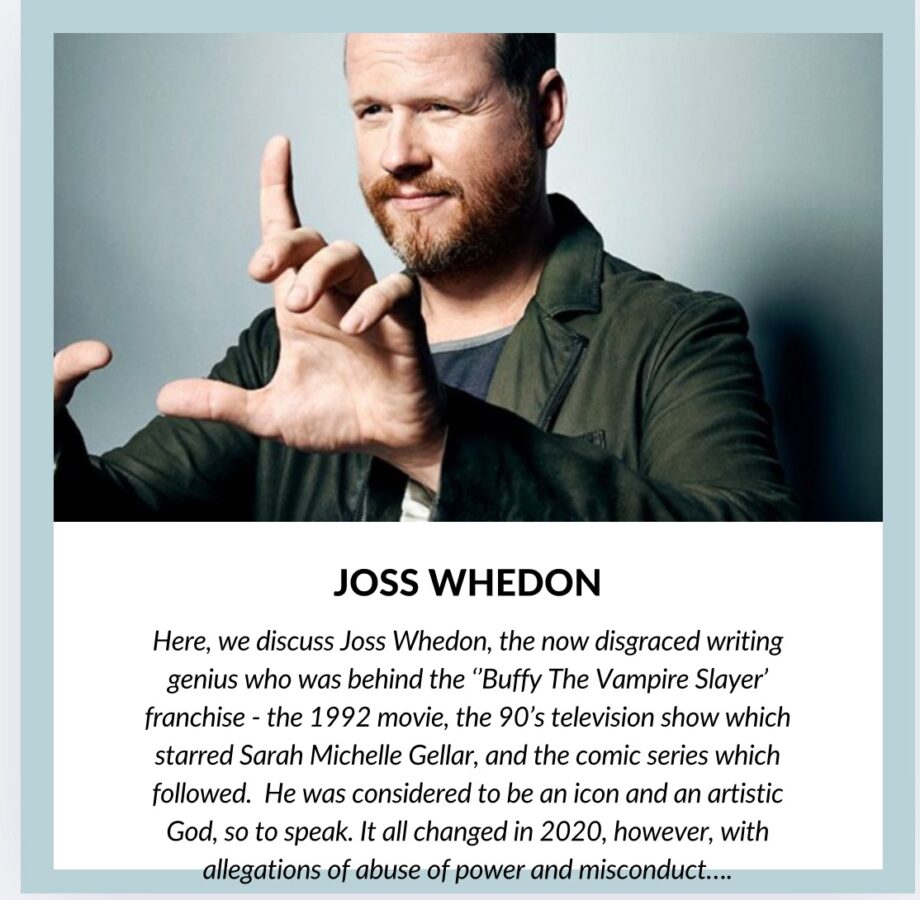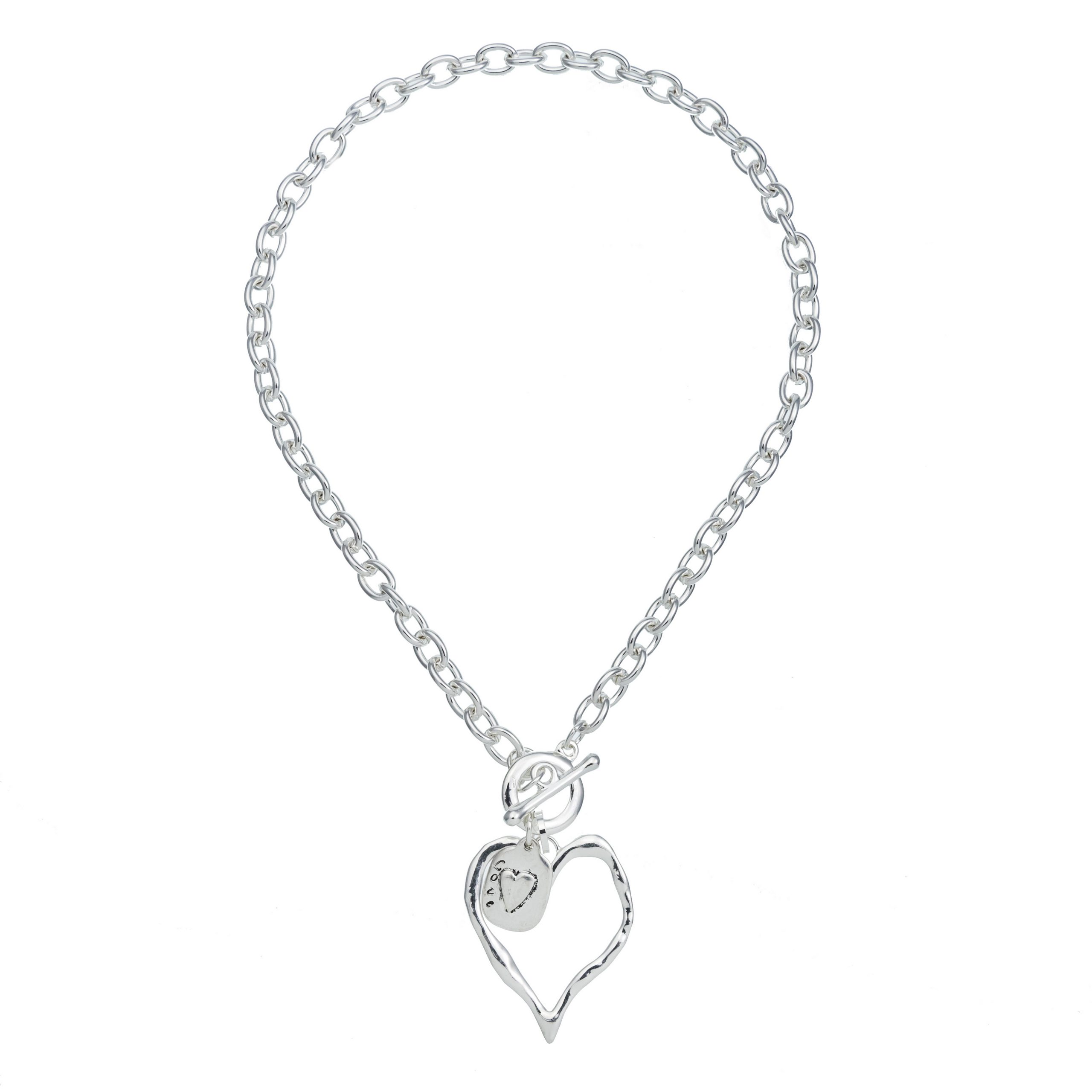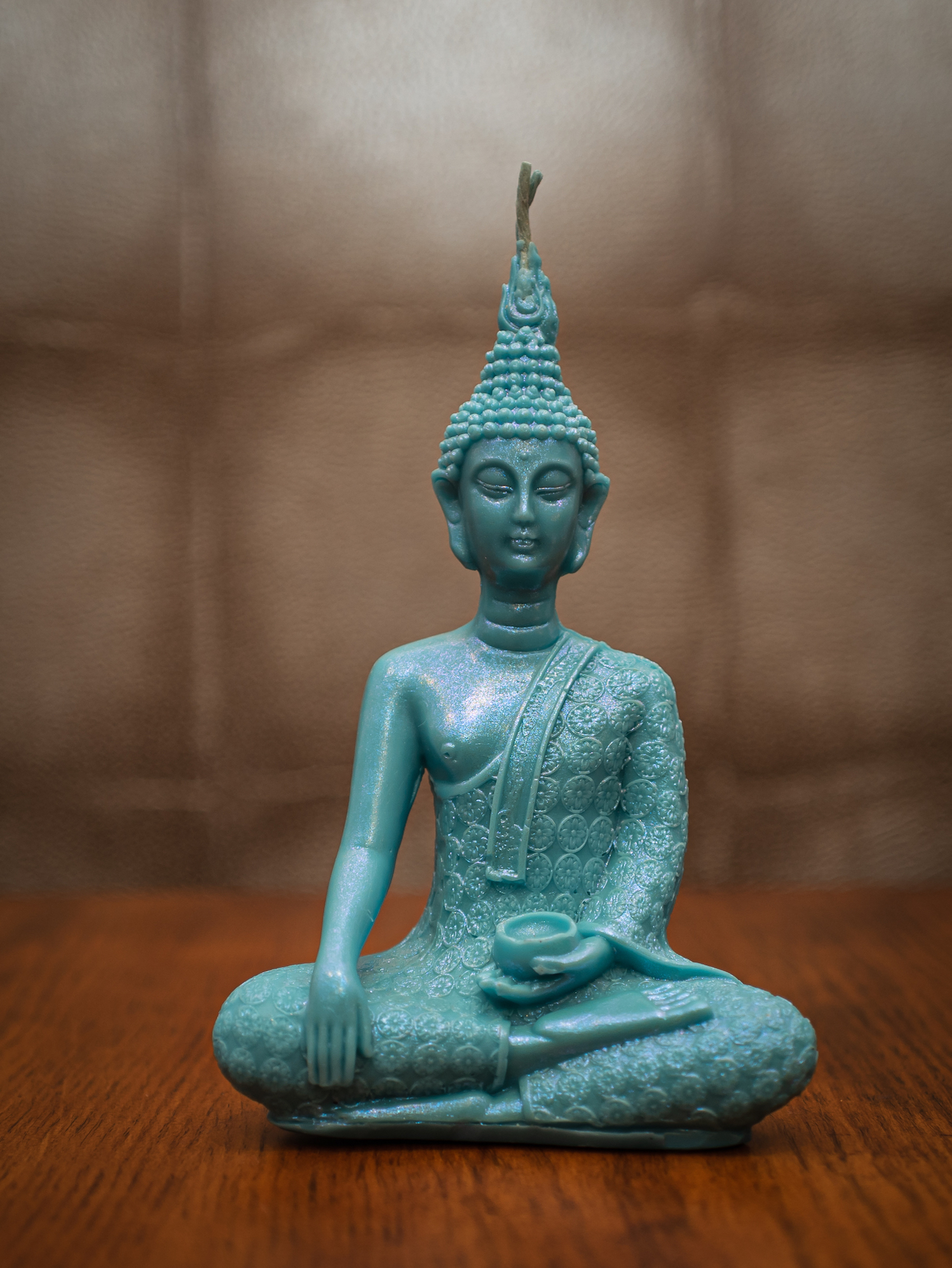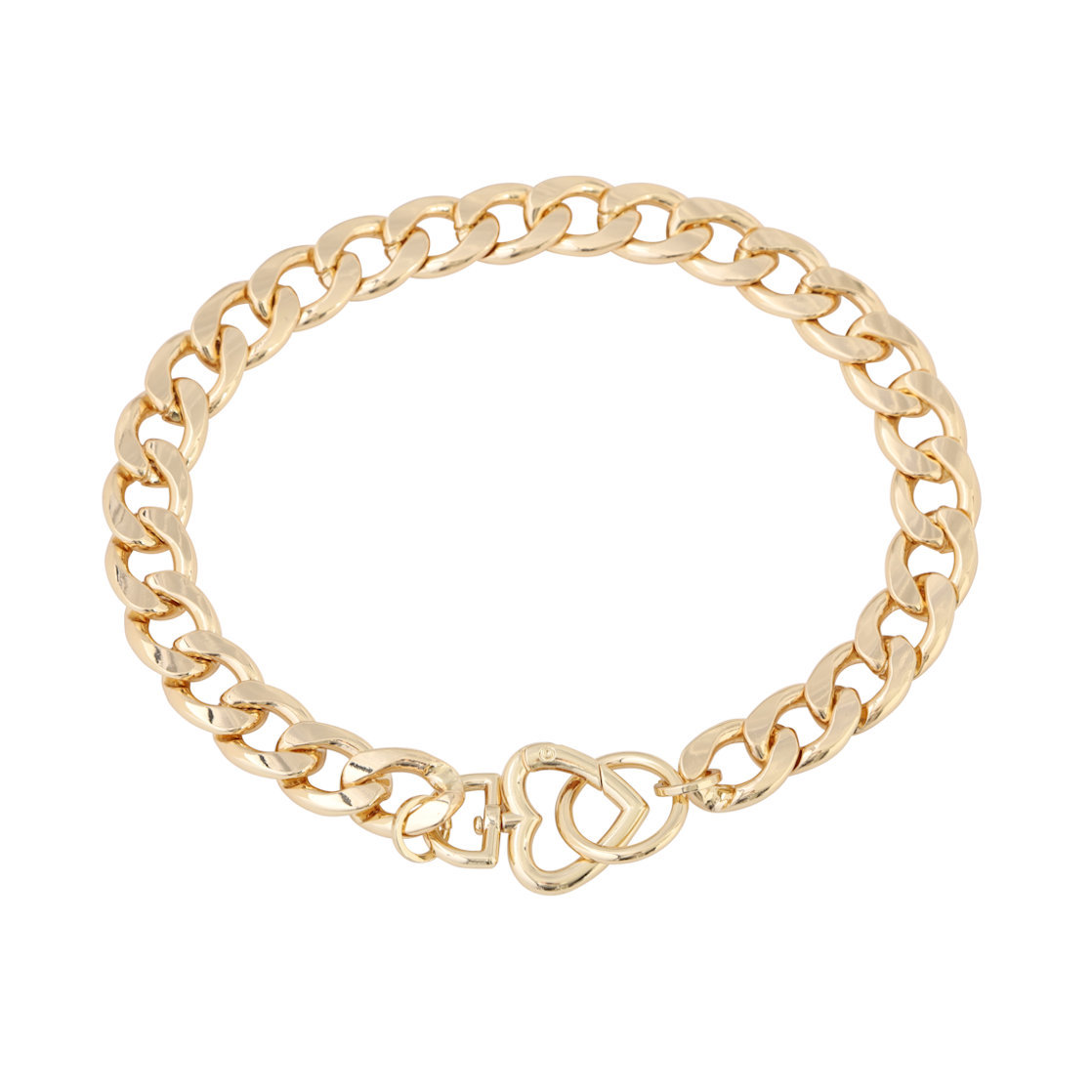It’s been almost 35 years since we were first introduced to ‘Buffy The Vampire Slayer’ – the movie, that is, that was released in 1992 and starred Kristy Swanson, Donald Sutherland, and the late Luke Perry. It was written by Joss Whedon. But according to Whedon, the movie didn’t turn out to be what he envisioned it to be. He said, ‘I finally sat down and had written it and somebody had made it into a movie, and I felt like — well, that’s not quite her. It’s a start, but it’s not quite the girl.’ In 1997, he created ‘Buffy The Vampire Slayer’ TV show, starring Sarah Michelle Geller as Buffy, and co-starring Alyson Hanningan as Willow, Nicholas Brendon as Xander, and Anthony Stewart Head as Giles.
The movie did okay in the box office. The TV show, on the other hand, became a cult classic. Following the end of its run in 2003 after 7 seasons, Whedon continued telling Buffy’s story through comic books. In 2009, rumours began to swirl that there would be a remake of the series. Fans weren’t happy with the idea as it didn’t involve Whedon. The stars of the original series agreed. Gellar said, ‘I think it’s a horrible idea. To try to do a ‘Buffy’ without Joss Whedon… to be incredibly non-eloquent: that’s the dumbest idea I’ve ever heard.’ She obviously changed her mind as it was just recently announced that ‘Buffy’ would be rebooted, and she will be starring in the series, as well as producing it – and Whedon would have zero involvement in it.
A lot has happened since the years of ‘Buffy’ and its spinoff, ‘Angel’. It all started in 2021, when Charisma Carpenter, who played Cordelia Chase on both shows, released a lengthy statement of exactly what her experience was like working for Whedon, particularly of his abuse of power after he found out she was pregnant during the production of ‘Angel’. She wrote, ‘[H]e asked me if I was ‘going to keep it,’ and manipulatively weaponized my womanhood and faith against me. He proceeded to attack my character, mock my religious beliefs, accuse me of sabotaging the show, and then unceremoniously fired me following the season once I gave birth. For nearly two decades, I have held my tongue and even made excuses for certain events that traumatize me to this day. The disturbing incidents triggered a chronic physical condition from which I still suffer. It is with a beating, heavy heart that I say I coped in isolation and, at times, destructively. He was mean and biting, disparaging about others openly, and often played favorites.’
Other ‘Buffy’ stars like Amber Benson, Eliza Dushku, and Michelle Trachtenberg fully supported Carpenter’s testament. Benson tweeted, ‘’Buffy’ was a toxic environment and it starts at the top. There was a lot of damage done during that time and many of us are still processing it 20-plus years later.’ Dushku tweeted in response to Carpenter, ‘I’m so sorry you have held this for so long. Your post was powerful, painful, and painted a picture we’ll collectively never un-see or un-know. Thank you. I hadn’t known it and I won’t forget it.’ And Trachtenberg wrote, ‘I am brave enough now as a 35 year old woman….To repost this. Because. This must. Be known. As a teenager. With his not appropriate behavior….very. Not. Appropriate.’
Trachtenberg was 15 at the time of filming and wasn’t allowed to be alone in the same room with Whedon. Her statement was a response to Sarah Michelle Geller’s own statement in response to Carpenter that read, ‘While I am proud to have my name associated with Buffy Summers, I don’t want to be forever associated with the name Joss Whedon. I am more focused on raising my family and surviving a pandemic currently, so I will not be making any further statements at this time. but I stand with all survivors of abuse and am proud of them for speaking out.’
That abuse of power didn’t end on ‘Buffy’. That same year, Gal Gadot opened up about her experience of working with Whedon. She first hinted at her not-so-great experience of him with him when she said that it ‘wasn’t the best one.’ She then elaborated it on an Israeli television programme when she said, ‘What I had with Joss, basically, is that he kind of threatened my career and told me that if I did something, he would ensure that my career would be miserable. And I simply handled it on the spot. I just did what I felt like I had to do. And it was to tell people that it’s not okay. I was shaking trees as soon as it happened. And I must say that the heads of Warner Bros, they took care of it…Going back to the sense of righteousness that I have…I just did what I felt like I had to do. And it was to tell people that it’s not okay. Would he tell me what he told me had I been a man? I don’t know. We’ll never know. But my sense of justice is very strong. I was shocked by the way that he spoke to me. But whatever, it’s done. Water under the bridge.’ She later told Elle magazine, ‘I was shocked by the way that he spoke to me. You’re dizzy because you can’t believe this was just said to you. And if he says it to me, then obviously he says it to many other people.’
Whedon, in turn, refused to take any responsibility or accountability. In response to Gadot’s claims, he told New York magazine, ‘I don’t threaten people. Who does that? English is not her first language, and I tend to be annoyingly flowery in my speech.’ He also recalled an argument over a scene Gadot wanted to cut, to which he said he responded jokingly that if she wanted to get rid of it, she’d have to ‘tie him to a railroad track and do it over his dead body.’ Whedon wrote, ‘Then I was told that I had said something about her dead body and tying her to the railroad track.’ Gadot responded by saying, ‘I understood perfectly.’ And I’m certain she did. Her English is absolutely fine. Just because she comes from another country, speaks more languages than one, and has an accent doesn’t mean that her English is broken.
But Whedon’s mistreatment and abuse of power had gone beyond just women. In 2020, Ray Fisher, Gadot’s co-star in ‘Justice League’, accused Whedon of ‘gross, abusive, unprofessional, and completely unacceptable’ conduct. Moreover, these accusations had to do with how his character in the film was portrayed following original director Zack Snyder’s departure from the film. According to Fisher, producers dismissed the actor’s concerns after telling Fisher to play his character Cyborg like Quasimodo from ‘The Hunchback of Notre-Dame.’ He told THR, ‘I didn’t have any intention of playing him as a jovial, cathedral-cleaning individual. It was like he was assuming how Black people would respond rather than taking the advice from the only Black person – as far as I know – with any kind of creative impact on the project. That was the last creative conversation about anything that Geoff Johns and I had. I knew I was on my own.’
There was one person who had an entirely different experience working with Joss Whedon, and that was Nathan Fillon. On the ‘Inside Of You’ podcast, Fillion said he’d work with Whedon again in a second, and of the article published in the New York magazine, he said, ‘I read that article, and nowhere in there at any point in time did he mention ‘Firefly.’ I had an entirely – that was not my experience with that man. I mean, listen by his own admission that guy’s a work in progress and I appreciate that…I would work with Joss again in a second. I would work with him again in a second.’
I was a big ‘Buffy’ fan. I loved seeing a powerful woman on-screen. Sarah Michelle Geller, to me, was a representation of strength and courage. As a young viewer, she she showed me that it was, in fact, possible for a woman to be powerful and vulnerable at the same time, and that vulnerability wasn’t a sign of weakness by any means; it was just life. Perhaps the most memorable episode of ‘Buffy The Vampire Slayer’ was ‘The Body’. It was a season 5 episode where Buffy and Dawn’s mother, Joyce, died of an aneurysm resulting from a brain surgery. Whedon based the episode on his own experience of his mother’s passing due to a car accident when he was in his 20’s. He wanted to showcase the grief that entails on that very first day, and he did so beautifully. Joyce’s death was shocking moment that showed that even in a realm of horrors, normal life could be cut short. It also highlighted how difficult it is to accept loss, especially when it’s so unexpected. That very first moment when Buffy found her mother’s lifeless body was an unforgettable one. And when she called her ‘Mommy’… even now, as I write this, my eyes are filled with tears. The episode was aired in February 2001, and received wide acclaim, and has since been ranked by several critics as one of the greatest television episodes ever broadcast. The episode also marked the first time we ever saw Willow and Tara kiss onscreen, and it was something Whedon fought for tirelessly; even threatening to quit the show entirely if WB didn’t allow it to happen. This will be important to remember for a future pointer in the post.
The next memorable episode was ‘Once More, With Feeling’, a season 6 episode of the series. The musical episode explored changes in the relationships of the main characters, using the plot device that a demon—credited as ‘Sweet’ but unnamed in the episode—compels the people of Sunnydale to break into song at random moments to express hidden truths; truths that would’ve never been shared if not in a song. This episode marked a bold artistic statement. It was a storytelling masterpiece. Whedon had already known that he wanted to do a musical number for a while. It was already known that Anthony Stewart Head, who played Giles, and James Marsters, who played Spike, could sing. We had heard glowing reviews of Amber Benson’s voice, so Tara was set too. But what about the rest of the cast? All the regular cast members sang their own parts. They received extra training in singing and dancing. More than 20 years after it first aired, the episode is considered to be revolutionary, with a lot of story packed into it. The actors, however, were less than thrilled about doing the episode. In fact, they were, I’d say, petrified. As per the 20th anniversary reunion, this is what the actors said:
- Nicholas Brandon – ‘The musical for me was kind of my ultimate because it was so different. It didn’t matter if I sucked because I wasn’t hired to be a singer or dancer.’
- Anthony Stewart Head – ‘Once More with Feeling’ was my dream because I got to do a musical on TV and it was genius. It was extraordinary. One of my fondest memories is once I had done my song, I hung around the studio because I didn’t want to leave. People kept coming in for their vocals and going, ‘Why are you here?’’
- James Marsters – ‘I remember, in general for different reasons. I think the entire cast was a bit terrified. I think one person, I forget who it was, actually asked to juggle chainsaws instead. Like real chainsaws. And we didn’t realize how big of a genius Joss was. One of the recurring themes of working on that show over the years was just the slow dawning of the amount of talent contained in that skull of Joss Whedon. I think it was our best moment because at some point we knew that Joss would not be talked out of it and we definitely tried. And we stopped whining and we started working really hard. And suddenly there were voice coaches and dance coaches showing up on set. I think in the face of what we thought was certain doom, we decided to go out swinging. And I have said that for a bunch of Hollywood actors that’s as close to heroism as we’re gonna get.’
- Michelle Trachtenberg – ‘The way I was told was Joss had been pitching it for ages and then all of a sudden ‘Ally McBeal’ had a musical episode and Joss was like, ‘Hell naw!’ On some weekends, Joss would have some cast members and crew and there would be a designated place and we would all read Shakespeare. Then afterward everyone would eat and drink. Then I think that James [Marsters] would get on the piano or Joss would get on the piano and I think that helped perpetuate the ‘Let’s do a musical!’ episode.’
- Sarah Michelle Gellar – ‘I’m not a singer. I never have been and I didn’t have a lot of time with the material. So my original intention was to have someone else do the singing. What I didn’t realize at the time is it would be such an emotional arc for the character. I didn’t realize that would be the episode where you found out where she was. Then I talked to Joss and I said, ‘I don’t have the time and I don’t feel confident enough to do it.’ We didn’t get the script until like two or three weeks before. I really went back and forth to whether or not I was going to sing. And Joss said, ‘I’ll do whatever I can to make it as easy on you as possible,’ like bringing in my friend Adam Shankman. But it was exhausting.’
The fear was absolutely worth it, and I’m actually so glad that Sarah Michelle Gellar decided to use her own voice for the final version of the episode. Her voice is beautiful and soft. It was exactly what was needed to bring the emotional depth to Buffy and what she was going through at the time. She was always the strong one in the group; the leader and the problem-solver. And yet, during that particular time, she was suffering beyond compare; beyond what was understood exactly. In the previous season’s finale, she died. She sacrificed herself to save the world. Her friends couldn’t bear the grief of losing her, so they had Willow, a witch, bring her back to life. But Buffy was happy wherever she was in her death’s aftermath. She didn’t want to be brought back to life. As much as she tried to pretend and play happy for the sake of her friends, she couldn’t take it anymore. Hence came ‘Give Me Something’, where she almost danced herself to death until Spike, who was in love with her, stopped and sang to her, ‘You have to go on living’ followed by Dawn’s, ‘The hardest thing in this world is to live in it,’ a quote previously spoken to her by Buffy herself. Later in the episode, Buffy gives herself to Spike and the two become a sexual couple. But it was Buffy’s ‘There was no pain. No fear, no doubt ‘till they pulled me out of heaven’ that had me shivering with emotional pain, alongside with her friends’ reactions to her words. I felt every single word that she sang.
Giles had been a father-figure to everyone in the group, but especially to Buffy throughout the entire series. Here, he was contemplating whether or not Buffy needed him anymore in the first place or whether he should leave and let the group go on without him. Xander and Anya were a couple and engaged be married. The only thing they had going on in that episode was them trying hard to get used to their new domesticated life. We know that Xander later left Anya at the alter. Aside from Buffy’s arc, it was Willow and Tara’s storyline in that episode that was most impactful.
I heavily discussed Willow and Tara’s entire storyline in my previous blog entry with Tara as the main subject matter. And of course, the couple’s storyline in this episode was included as well. Tara was first introduced as the shy, quiet girl. ‘Once More, With Feeling’ was a defining moment for her. She met Willow during a time where Willow was still getting the hang of magic. By the time the musical episode rolled around two years later, Willow was addicted to magic. It was a drug to her, and she used it in any situation she could; particularly when she was uncomfortable, for as to avoid conflict. Willow then crossed a boundary when she used magic to make Tara forget a fight that they had. They’d been fighting a lot by that point due to Willow’s addiction, but were happy again once Tara had forgotten all about the matter. Tara sang ‘I’m Under Your Spell’ to Willow, which she literally was, and the two had sex. Dawn then accidentally blurted out to Tara that she and Willow were fighting, and that was how she realized Willow used magic to mess with her mind. She reprised ‘I’m Under Your Spell’, this time with a different meaning. In the following episode, we saw Tara confront Willow heads on and break up with her.
This leads us to discuss the most controversial episode of ‘Buffy The Vampire Slayer’ – ‘Seeing Red’. This was the season finale, aired on May 7th, 2002. In the episode, Tara and Willow got back together. We saw them lying in bed after what was presumed to be sex. They were happy. They were couldn’t be more excited for their future together. But… Willow and Tara’s happiness was short lived; VERY short lived. Tara died. She was accidentally shot in the chest by Warren, who was aiming at Xander outside Willow and Tara’s bedroom window. The episode is considered to be the worst episode of the entire series, and controversial for reason that it featured the death of a popular lesbian character, which many viewers felt was a gratuitous and harmful portrayal of LGBTQ+ representation, with accusations that the episode implied lesbian sex was punishable by death due to the timing of her death following an intimate scene with Willow. More so:
- Impactful character death: Tara was a well-loved character by fans, so her sudden and violent death caused a strong emotional response.
- Perceived anti-LGBTQ+ message: Critics argued that placing Tara’s death directly after a sexual scene with Willow could be interpreted as a negative portrayal of lesbian relationships.
- Lack of positive representation: The episode was seen as a missed opportunity to showcase a healthy and positive depiction of a lesbian couple.
I can’t say I fully agree with this; at least not when it comes to how the LGBTQ community was portrayed on the show. I personally think that Whedon did a great job at representing the community, and he did the best that he could given the time the show was made. He was an ally and an advocate for Willow and Tara’s story to progress to what it became. He advocated for the relationship to be presented as equal as heterosexual relationships did – the same way that Buffy and Angel’s relationship progressed. The show’s network was the WB for the first 5 seasons. They had a clause to not show any sexual relationships between gays and lesbians. It was forbidden, especially after Ellen publicly came out as a lesbian just a couple of years prior.
Because of that, Whedon had to come up with different ways to showcase Willow and Tara’s sexual chemistry. He did so by using magic as the metaphor. Their first on-screen kiss happened in ‘The Body’, when Tara was comforting Willow as she was choosing an outfit to wear to the hospital to support Buffy following her mom’s death. The kiss didn’t have sexual intentions. It was just about the little things that couples did. It wasn’t about passion, but rather about softness. And yet, the kiss between the couple was groundbreaking. It was the first lesbian kiss ever seen on cable television, and it occurred almost two years into Willow and Tara’s relationship. He tirelessly fought to make the kiss happen. He even threatened to quit ‘Buffy’ entirely if the WB didn’t allow the kiss to happen.
The decision to kill off Tara was often cited as an example of the ‘bury your gays’ trope, where queer characters are more likely to be killed off than straight ones because they’re seen as more expendable – at least during the time when ‘Buffy’ was on air. The queer community demanded that Tara be brought back. There was a plan to do so in season 7, but Amber Benson, the woman behind Tara, decided not to. In the book, ‘Into Every Generation, a Slayer Is Born: How Buffy Staked Our Hearts’, written by Benson opened up about her decision. She explained, ‘Leaving the show was sad because there are some of the crew and the writers and some of the cast that I just adore, but I had made my peace with that person and the show, and I was done: ‘I’m leaving everything in a good place. I don’t need to come back. All the sh*t hit the fan and Joss realized he had messed up. I mean, this is a time when people are, like, sending faxes to that production office, like this was a big, horrible thing, and it was devastating to a lot of people. I think it hit Joss that he had made a mistake, that he had been short-sighted. I truly, for all of his faults and for all of the things about him that are frustrating, I don’t think he ever meant to hurt the LGBTQ+ community. He just wasn’t thinking. I can truly, from the bottom of my heart, say [that] this was nothing intentional. This was a thoughtless error. But I didn’t want to come back. He really wanted me to come back and we just couldn’t come to an agreement on it. And most of that was my schedule. I was gonna miss going to England, not being able to direct ‘The Ghosts of Albion’ if I had said yes. I didn’t really trust what was going to happen to the character. I think that’s something if you’ve talked to some other cast, people are like ‘Yeah, I came back… and then he just did what he wanted. Even though he told me that he wasn’t going to kill me in this way, he killed me in that way. I just didn’t feel super trusting of the situation. And I felt like people had already been really hurt by this. And I’m not the writer. I can’t decide what’s going to happen to this character. I don’t have the reins. And so between the schedule, and not really having a hundred percent trust in what was going to happen and some other things, it just didn’t work out.
The thing about death is that it can happen to anyone any time, whether by accident or not. Death doesn’t just happen at an old age. Tara was at the wrong place at the wrong time, and that was why she died. Her getting back with Willow shortly beforehand had nothing to do with it. It was rather that she was standing right by the window, and Warren accidentally aimed at the window she stood by. Her sexual orientation had nothing to do with it. This could’ve happened to her if she was straight too. People who were part of the LGBTQ community took Whedon’s decision the wrong way, I feel. The decision was made in order to continue telling Willow’s story, but he probably would’ve done the same to her male partner too had Willow been with a man following Oz’s departure.
This leads us to discuss Warren, the man who was responsible for Tara’s accidental death. Following Willow’s inability to save Tara’s life, she turned into ‘Dark Willow’, Willow’s alter-ego. After trying so hard to exile her addiction to magic, Willow lost all control when she witnesses the one person she did it for and turns into the evil version of herself. Dark Willow’s mission is to murder Warren, as well as his two accomplices, by torturing him, and the world thereafter. Warren was an extremely misogynistic narcissist. He was the worst of all non-human villains Buffy had to endure during her time as a slayer. He treated women like absolute utter garbage. He raped and killed women, he beat them and their significant others, and he had no issue hurting others with his words. It was unsettling. He was a man who chose to be evil. He could’ve changed many times, but refused to. He believed he was entitled to power, money and sex, and whatever else. He had the nice guy veneer, but underneath the mask was an evil man. The one time when he showed remorse was when ‘Dark Willow’ took him hostage and killed him. Who’s to even say that that the remorse was genuine in the first place not just faked because his life was on the line?
‘Buffy The Vampire Slayer’ was a show about feminism, but Joss Whedon was anything but a feminist. It can’t be defined that he’s a genius writer and creator. Season 4’s ‘Hush’ episode of ‘Buffy’ was undeniably a masterpiece as well. It highlighted the value of speech and the devastating effects of losing it. The episode was largely voiceless, but it was nominated for an Emmy for Outstanding Writing for a Drama Series. The episode illustrated how communication can be hindered by speech, but also shows the importance of words, as well as addressed the limits and assets of language and communication and the disruption to society when communication breaks down. Whedon came up with the idea for the episode after someone pointed out that his show was successful only for its dialogue.
But being a literal creative ‘God’ isn’t enough to be considered a worthy person of artistry; not anymore, to put it lightly. What makes someone worthy of their artistry is how they treat others and those working below them. Joss Whedon, of course, didn’t get the memo. Yes, Nathan Fillon had nothing but kind words to say about Whedon, but it’s important to remember that Fillon is a WHITE MALE. Whedon, of his kind, had disregarded those who were part of the minority groups – particularly women and people of colour. The one reason he didn’t use his power to abuse Sarah Michelle Gellar was because she was the star of the show. He needed her as without her, there’d be no show in the first place.
There are plenty of men in the world like Warren. In hindsight, Joss Whedon was the real-life Warren. Even his ex-wife, Kai Cole, called him out for being a ‘Hypocrite Preaching Feminist Ideals’. In a 2017 blog post for The Wrap, Cole recalled, ‘He used his relationship with me as a shield … so no one would question his relationships with other women or scrutinize his writing as anything other than feminist.’ After his ‘1992 ‘Buffy’ movie ended up being not what he envisioned, it was her that encouraged him to adapt it into a TV show. It was on the set of ‘Buffy’ that Whedon had his first affair. Fifteen years later, he said to her, ‘When I was running ‘Buffy,’ I was surrounded by beautiful, needy, aggressive young women. It felt like I had a disease, like something from a Greek myth. Suddenly I am a powerful producer and the world is laid out at my feet and I can’t touch it.’ He had affairs with actresses, co-workers, fans and friends while being married to Cole, but had insisted that he wanted to only build a life with her. She wrote, ‘He wanted it all; he didn’t want to choose, so he accepted the duality as a part of his life.’
And of course, Joss Whedon isn’t the only men who abused his powerful position and used it against women. Examples include:
- Mohammed Al-Fayed: A high-profile abuser who would assault women in his residences abroad and in dressing gowns
- Harvey Weinstein: A well-known sexual predator
- Jeffrey Epstein: A well-known sexual predator
- Al Franken: Resigned after allegations of groping and improper advances from multiple women
In a case of abuse of power, powerful men may exploit their position to take advantage of women, like Whedon did in many cases. Women may be silenced or forced into complicity, as Whedon attempted to do. Women may be viewed as disposable commodities, as how Whedon viewed women in his position of power. And finally, women may be forced to internalize their role as usable commodities, just as Whedon forced women on his sets.
To say that Whedon deserved to be cancelled would be an understatement. It’s unlikely that he’ll ever make a comeback. He’d first have to admit his wrongdoings, which he likely won’t ever do. The accusations against Whedon essentially revolve around him being a deeply unpleasant human being. These are just facts. With that being said, in today’s world, this, especially following the #MeToo movement, is something that just won’t fly. A comeback is highly unlikely for the 90’s creative icon.
Our Most Popular Posts
Sign up to our newsletter if you want to see more content from The Graceful Boon! By signing up to our newsletter, you'll get an even more in-depth content from yours truly, Stacie Kiselman, who's our Graceful Boon, that you won't want to miss out on.





















This guy is the biggest piece of crap in the nerdiverse. I loved Buffy and the comic books he wrote on. It was so disappointing to me to find out what a piece of crap he was. And THEN he went on record as saying it wasn’t his fault because he was rich or something ridiculous.
It is always a big shame when someone ends up making something cool, but being terrible themselves. I still haven’t seen Buffy myself.
It is always the case with the big and famous movie directers. Can’t get an end about these experiences.